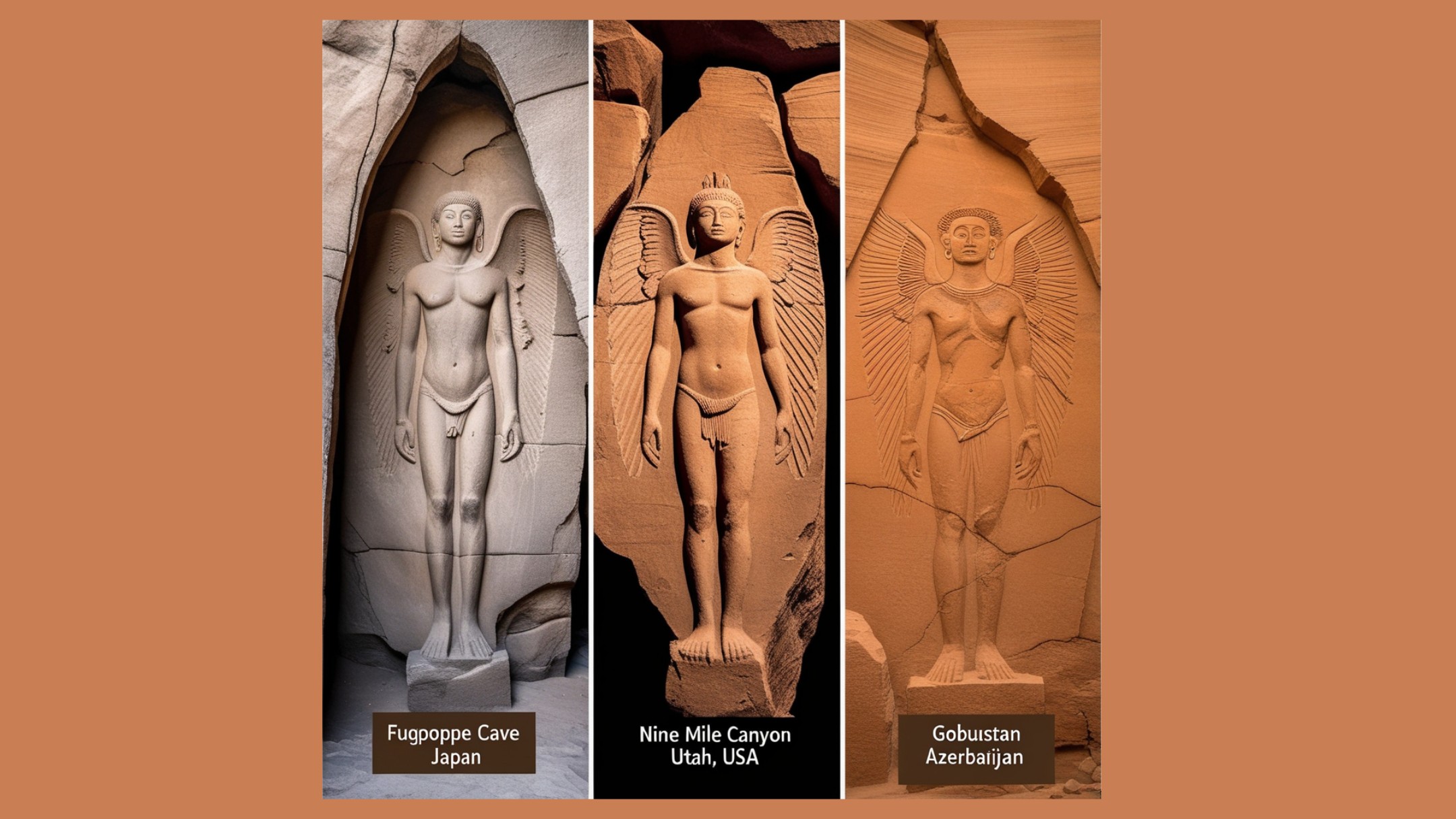Across the globe, historic petroglyphs that includes winged or flying figures spark fascination and discussion. Found in disparate destinationsâÂÂFugoppe Cave in Japan, Nine Mile Canyon in Utah, United states of america, and Gobustan in AzerbaijanâÂÂthese carvings, developed A large number of yrs aside, share a strikingly equivalent motif. What do these winged beings signify?
In Japan's Fugoppe Cave, courting back 7,000 decades, human-like figures with wing-like extensions propose spiritual or shamanic importance. Equally, the Nine Mile Canyon petroglyphs, produced 1,000âÂÂ2,000 many years ago by Native American cultures, depict anthropomorphic figures that can symbolize spiritual messengers or shamans. In the meantime, AzerbaijanâÂÂs Gobustan rock art, as many as ten,000 yrs outdated, options winged figures assumed to represent mythological deities or divine beings.

Theories about this shared imagery range between unbiased progress pushed by universal human experiences to the possibility of historic cultural exchanges. No matter, these carvings emphasize a deep human fascination with flight, transcendence, and spirituality, presenting a glimpse in the shared creativeness of our ancestors.
Investigate this intriguing mystery further more and uncover humanityâÂÂs historical connections etched in stone.
Comments on “Historic Winged Petroglyphs: A worldwide Thriller”